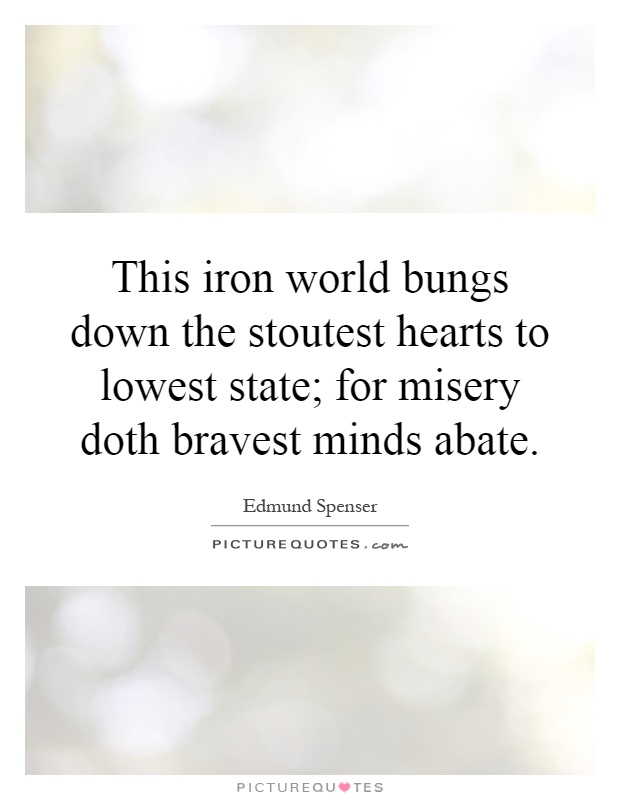This iron world bungs down the stoutest hearts to lowest state; for misery doth bravest minds abate

This iron world bungs down the stoutest hearts to lowest state; for misery doth bravest minds abate
Edmund Spenser, a renowned English poet of the Elizabethan era, often explored themes of hardship, struggle, and resilience in his works. In his epic poem "The Faerie Queene," Spenser delves into the idea that the world is a harsh and unforgiving place that can bring even the strongest individuals to their knees. The quote "This iron world bungs down the stoutest hearts to lowest state; for misery doth bravest minds abate" encapsulates this sentiment perfectly.Spenser believed that the world was filled with challenges and obstacles that could test even the bravest and most resilient of individuals. The phrase "This iron world" suggests a world that is unyielding and unrelenting in its demands, constantly putting pressure on those who inhabit it. The word "iron" conveys a sense of hardness and toughness, indicating the harsh and unforgiving nature of the world that Spenser describes.
The idea that even the stoutest hearts can be brought to their lowest state speaks to the power of adversity to break even the strongest individuals. Spenser understood that facing hardship and misery could wear down even the bravest minds, leading them to a state of despair and hopelessness. The word "misery" conveys a sense of profound suffering and anguish, highlighting the emotional toll that challenges can take on individuals.
Despite the bleakness of this sentiment, Spenser also believed in the resilience of the human spirit. Throughout "The Faerie Queene," the characters face numerous trials and tribulations, but they also demonstrate courage, perseverance, and strength in the face of adversity. Spenser's work serves as a reminder that while the world may be a harsh and unforgiving place, individuals have the capacity to overcome even the most daunting challenges.












 Friendship Quotes
Friendship Quotes Love Quotes
Love Quotes Life Quotes
Life Quotes Funny Quotes
Funny Quotes Motivational Quotes
Motivational Quotes Inspirational Quotes
Inspirational Quotes